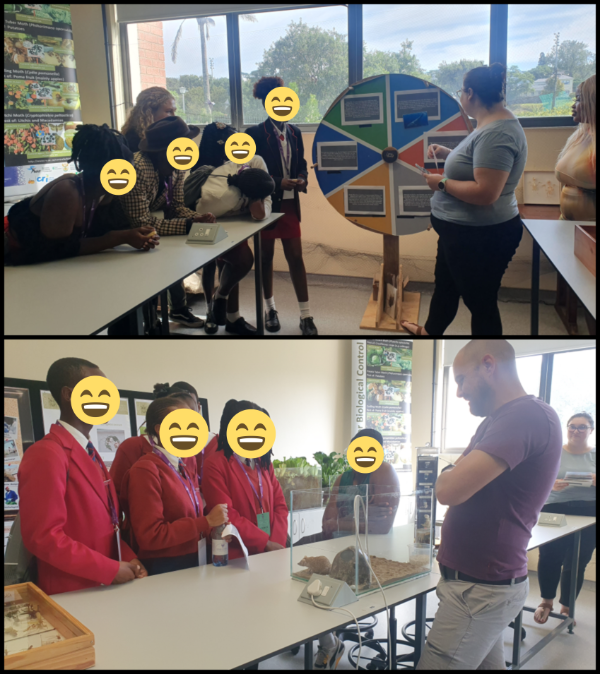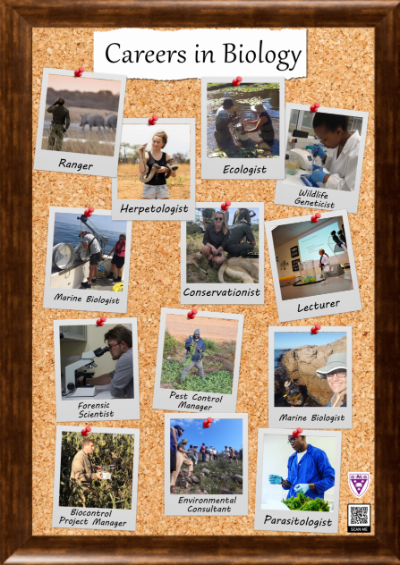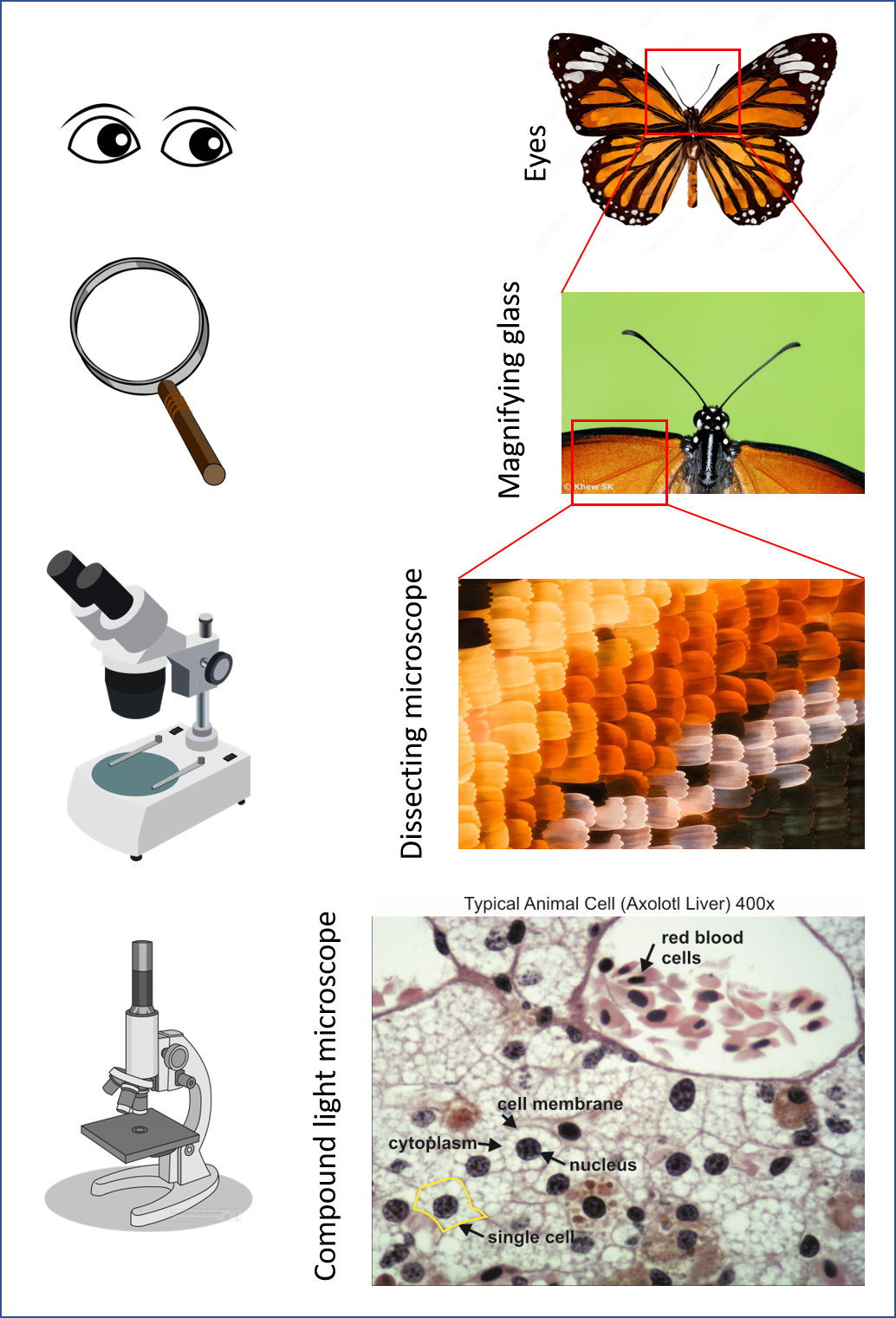Community Engagement is one of the pillars of Rhodes University and the DZE has been engaging communities not only for research purposes, but also through service learning courses. See some of our latest projects:
Check out the latest CE activities by the Centre for Biological Control members!

 |
In April 2024, the DZE welcomed over 100 learners from across the country for the RU Open Day. Various departments in the Science Faculty set up stands in our iNdlovukazi undergraduate lab, and showcased their research strengths. The DZE had many exciting exhibits, from skeletons and pinned insects, to a live tenrec! The learners could also spin the wheel of knowledge and if they got a question on biology correct, they could win a prize! |
| In February 2024, learners from the El Shaddai Christian Academy in Port Alfred visited the DZE to learn more about Life Sciences. Our team put together an Magnification and Microscopes - handout that explored the wonders of the tiny things in life. Learners were entranced by the different things that they could see using just a magnifying glass, a dissecting microscope and a compound microscope! The workshop was planned and facilitated by our knowledgable team and afterwards, we surprised the learners and their teachers with a gift of two microscopes! |  |
Last Modified: Wed, 11 Dec 2024 15:52:19 SAST